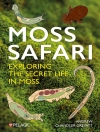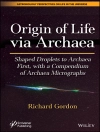Mushrooms are fleshy fungi with a high prospective for the production of secondary metabolites including extracellular enzymes with high agricultural and biotechnological significance. Worldwide, they are well recognized as supplementary foods due to their high nutritional values and their medicinal importance, which includes their uses in exhibiting antioxidant and antimicrobial activities, immune enhancer, and to be effective for the treatment of several diseases including diabetes and few types of cancers as well. According to recent studies, extracellular enzymes produced by several white-rot fungal strains such as Phanerochaete chrysosporium, Pleurotus sajor-caju and several mushrooms have shown a high capacity to decolorize dyes that are very harmful for the environment. Moreover, wild macrofungi have the capability to synthesize nanoparticles which are more useful for the treatment of cancer, gene therapy, DNA analysis and biosensors. Wild macrofungi areextremely important model for basic biology and commercial manufacture.
Tabla de materias
Preface.- Exploration of macrofungi in sub-tropical semi-evergreen Indian forest ecosystems.- A Global Overview of Edible Mushrooms.- Molecular characterization of wild mushrooms: a paradigm shift from morphotyping.- Antimicrobial and hepatoprotective activities of edible mushrooms.- Mushroom-mediated Protection from Oxidative Damage to DNA.- Chemical and bioactive profiling of wild edible mushrooms.- Biotechnological requirements for the commercial cultivation of macrofungi: substrate and casing layer.- Role of mushroom fungi in decolourization of industrial dyes and degradation of agrochemicals.- Mushrooms: Isolation and purification of exopolysaccharides.- Novel prospective of wild mushroom polysaccharides as potential prebiotics.- Pharmaceutic prodigy of ergosterol and protein profile of Ganoderma lucidum.- Application of Wild Macrofungi as Anticancer Therapeutics.- Recent advances in cultivation of edible mushrooms.- Medicinal mushrooms: Cultivation and pharmaceutical impact.- Biological control of microbial pathogens in edible mushrooms.- Cordycepin: A biotherapeutic molecule from medicinal mushroom.- Biosynthesis of Nanoparticles using Mushrooms.- Bioconversion and Biotransformation Efficiencies of Wild Macrofungi.- Wild macro-fungi from Northwest Himalayas: Future prospects and challenges.- Index.
Sobre el autor
Bhim Pratap Singh
Dr. Bhim Pratap Singh working as Assistant Professor in the Department of Biotechnology, Aizawl, Mizoram University, India, has more than 10 years of research experience in the field of molecular microbiology, biocontrol of plant diseases, mushroom diversity, biosynthetic potential of actinobacteria and fungi associated with medicinal plants. He has worked for last 10 years on microbial diversity and explored the microbial population associated with medicinal plants and rhizospheric soils. His group has documented the wild mushroom of from Mizoram, Northeast India. He has completed seven externally funded research projects on screening and characterization of endophytic actibacteria and fungi associated with medicinal plants and the rhizospheric soils funded by several funding agencies. Dr. Singh has organized several international and national conferences and seminars including India-UK scientific seminar jointly funded by the British Council and the Department of Science and Technology (DST), New Delhi. Dr. Singh has been awarded with several honors like young scientist award in 2014 from Scientific and education Research Society, India and Best achievement award for the contribution to the Asian PGPR society, USA. Dr. Singh is serving ad editors of several reputed peer reviewed scientific journals like Frontiers in Microbiology, Plos ONE etc., and he is an active member of several national and international professional bodies like Asian PGPR Society, Association of Microbiologists of India, MSI, ISCA etc.. His group has published more than 45 research papers in SCI journals and 16 book chapters in the books published by national and international publishers. Dr. Singh has also edited two books published from Springer and Elsevier publications. Dr. Singh has guided 4 Ph.D students and 3 M.Phil students till date.
Lallawmsanga Chhakchhuak
Mr. Lallawmsanga is pursuing Ph.D. at the Departmentof Biotechnology, Mizoram University. With his research experience at the Centre for advanced studies in Botany, University of Madras, India. He has been working in the field of plant science and environmental microbiology during the last eight years. He has attended several national and international conferences. Mr. Lallawmsanga has published one paper in PLOSONE international journal to explain about diversity and antimicrobial potential of wild edible mushroom from Mizoram, Northeast India. He has been actively taking part in the university outreach programmes to educate the tribal community in Mizoram, India.
Ajit Kumar Passari Dr. Ajit Kumar Passari working as Research Associate in Department of Biotechnology, Aizawl, Mizoram University, India, has more than six years of research experience on various fields of molecular marker study and their phylogenetic analysis, Molecular biology, secondary metabolites production and plant growth promoting potential of actinobacteria associated with medicinal plant. He has especially worked on DNA fingerprinting of endophytic actinobacteria, fungi and mushroom and screening for their antimicrobial biosynthetic potential. His research team has explored number of actinobacteria, fungi and mushroom from different sources of Mizoram, India and their functional approach. Dr. Passari has been received various awards like Young Scientist Award in International Conference on “Innovative Approaches in Applied Sciences and Technologies” at Nanyang Technological University, Singapore and selected for 2
nd BRICS Young Scientist Forum in 2017 at Zhejiang University in Hangzhou, China. He is an active member of various national and international societies like Asian PGPR Society of Sustainable Agriculture, Association of Microbiologists of India and Indian Science Congress etc. Dr. Passari has published more than 25 research papers in peer reviewed national and international journals with high impact factor. He has published 08 book chapters in national and international publishers as well as also edited one book in actinobacteria: diversity and biotechnology applications published from Elsevier publications.












